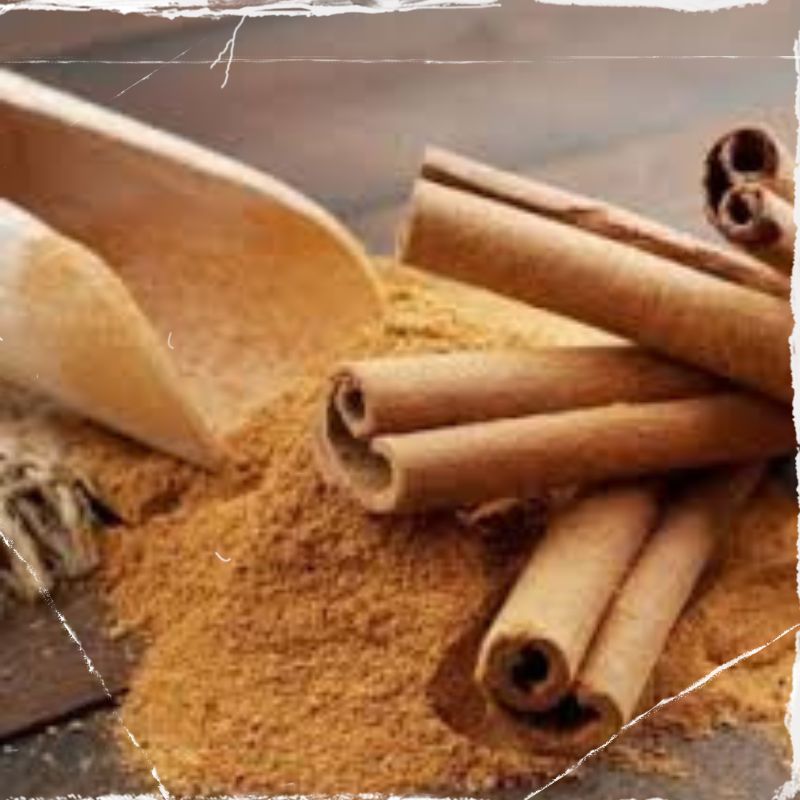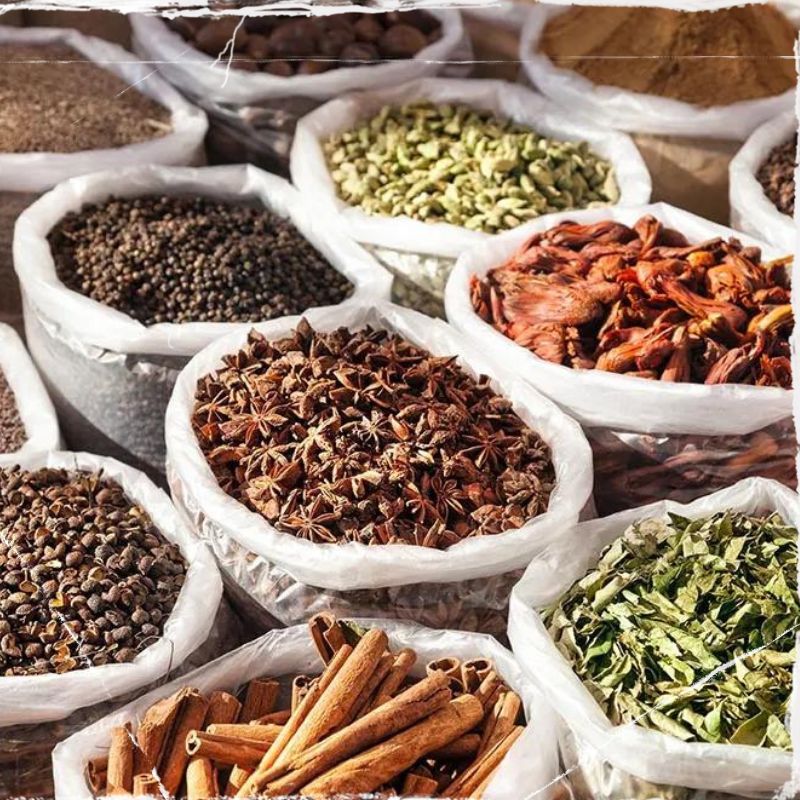This article explores the exciting world of private label spices wholesale, highlighting the opportunities and strategies for businesses looking to enter this growing market. With consumers increasingly seeking unique flavors and high-quality products, private labeling offers a way for brands to stand out and meet these demands. This guide will provide insights into market trends, benefits, and practical steps for launching your own private label spice line.
Key Takeaways
- Private label spices wholesale offers a unique chance to create exclusive products that reflect your brand.
- Understanding market trends and consumer preferences is crucial for success in the spice industry.
- Building a strong brand identity helps differentiate your products in a crowded market.
- Effective marketing strategies, including online presence and social media, can boost your brand’s visibility.
- Navigating challenges like supply chain management and regulatory compliance is essential for sustainable growth.
Understanding the Private Label Spices Wholesale Market
In the ever-evolving landscape of the private label spices wholesale market, we find ourselves at a pivotal moment. The global seasoning and spices market size was estimated at USD 21.69 billion in 2023 and is expected to grow at a CAGR of 6.8% from 2024 to 2030. This growth presents a wealth of opportunities for businesses looking to enter the market.
Market Trends and Opportunities
As we delve into the market trends, we notice several key opportunities:
- Rising Demand for Organic Products: Consumers are increasingly seeking wholesale organic spices that align with their health-conscious lifestyles.
- Diverse Flavor Profiles: There is a growing interest in unique and exotic flavors, prompting businesses to buy spices wholesale from various regions.
- E-commerce Growth: The shift towards online shopping has opened new avenues for spices for sale wholesale, allowing brands to reach a broader audience.
Key Players in the Industry
The spice industry is populated by various wholesale spice companies that play crucial roles:
- Local Farmers: They provide fresh, high-quality spices that are essential for private labeling.
- Manufacturers: Companies like Shavi Vietnam stand out as the best wholesale spice company, offering a range of products tailored to market needs.
- Distributors: They ensure that products reach retailers efficiently, maintaining the supply chain’s integrity.
Consumer Preferences and Demands
Understanding consumer preferences is vital for success in this market. Key demands include:
- Quality Assurance: Customers expect high-quality products, making quality control a priority for manufacturers.
- Sustainability: There is a growing preference for ethically sourced spices, which aligns with the global trend towards sustainability.
- Customization: Consumers appreciate the ability to choose unique blends, making private label spices wholesale an attractive option for retailers.
In conclusion, the private label spices wholesale market is ripe with potential. By collaborating with Shavi Vietnam, partners can leverage the advantages of Vietnam’s rich spice heritage, ensuring they meet consumer demands while maximizing their profit potential.
Benefits of Private Labeling in the Spice Industry
In the spice industry, private labeling offers numerous advantages that can significantly enhance our business potential. By collaborating with Shavi Vietnam, we can leverage the following benefits:
Exclusivity and Brand Differentiation
Private labeling allows us to create unique spice products that stand out in a crowded market. This exclusivity not only attracts customers but also fosters brand loyalty. When we partner with private label spice manufacturers, we gain the ability to develop products that reflect our brand identity, setting us apart from competitors.
Cost Efficiency and Profit Margins
Working with a custom spice manufacturer like Shavi Vietnam can lead to substantial cost savings. By utilizing their expertise, we can avoid the high costs associated with product development and marketing. This efficiency translates into better profit margins, allowing us to offer competitive pricing on our private label spices and seasonings. Here’s a quick overview of potential cost benefits:
| Cost Factor | Traditional Approach | Private Labeling with Shavi Vietnam |
|---|---|---|
| Product Development Costs | High | Low |
| Marketing Expenses | Significant | Reduced |
| Profit Margin Potential | Moderate | High |
Quality Control and Customization
One of the most compelling reasons to choose private labeling is the control we have over product quality. By working directly with private label organic spices suppliers, we can ensure that our products meet the highest standards. This control extends to customization, allowing us to tailor our offerings to meet specific consumer preferences. For instance, we can create unique private label spice rubs that cater to niche markets.
By choosing private labeling, we not only enhance our product offerings but also build a strong brand presence in the spice market.
In conclusion, the benefits of private labeling in the spice industry are clear. With Shavi Vietnam as our partner, we can unlock new opportunities for growth and success in this vibrant market.
Steps to Launching Your Private Label Spice Line
Launching a private label spice line can be an exciting venture. Here, we outline the essential steps to guide you through the process.
Conducting Market Research
To kick off our journey, we must first conduct thorough market research. This involves:
- Identifying a profitable niche in the spice market.
- Analyzing competitors to understand their strengths and weaknesses.
- Understanding consumer preferences and their willingness to pay for unique spice blends.
Finding Reliable Suppliers
Next, we need to find reliable suppliers who can provide high-quality spices. We recommend:
- Researching manufacturers that specialize in spices.
- Requesting samples to ensure quality.
- Evaluating their production capabilities and compliance with industry standards.
Developing a Strong Brand Identity
Finally, we must focus on developing a strong brand identity. This includes:
- Creating a memorable brand name and logo.
- Designing attractive packaging that reflects our brand values.
- Collaborating with our manufacturer to customize our spice products for differentiation.
By following these steps, we can effectively launch our private label spice line and tap into the growing market for unique and high-quality spices. Partnering with Shavi Vietnam offers us the advantage of sourcing premium spices and essential oils, ensuring our products stand out in the competitive landscape.
Marketing Strategies for Private Label Spices

In the competitive landscape of the spice industry, effective marketing strategies are essential for success. By collaborating with Shavi Vietnam, we can leverage unique advantages that set our private label spices apart from the competition.
Building an Online Presence
Creating a strong online presence is crucial for reaching our target audience. This includes:
- Developing a user-friendly website that showcases our organic spices private label offerings.
- Utilizing SEO strategies to improve visibility in search engines.
- Engaging in email marketing campaigns to keep customers informed about new products and promotions.
Leveraging Social Media Platforms
Social media is a powerful tool for connecting with consumers. We can:
- Share engaging content that highlights the benefits of our custom spice blend manufacturers.
- Run targeted ads to reach specific demographics interested in high-quality spices.
- Collaborate with influencers in the culinary space to expand our reach and credibility.
Collaborating with Retail Partners
Partnering with retailers can significantly enhance our market presence. We should:
- Identify potential retail partners that align with our brand values.
- Offer exclusive products that cater to their customer base, such as blended spices manufacturer offerings.
- Provide training and support to retail staff to effectively promote our products.
By focusing on these marketing strategies, we can unlock the full potential of our private label spice line and establish a strong foothold in the market. Our collaboration with Shavi Vietnam ensures that we deliver high-quality products that meet consumer demands.
Navigating Challenges in Private Label Spices Wholesale
In the world of private label spices, we often encounter various challenges that can impact our success. However, by collaborating with a custom spice supplier like Shavi Vietnam, we can effectively navigate these hurdles and unlock our profit potential.
Managing Supply Chain Complexities
Managing the supply chain can be tricky, especially when dealing with multiple suppliers and logistics. Here are some strategies to consider:
- Streamlined Communication: Establish clear lines of communication with suppliers to ensure everyone is on the same page.
- Regular Audits: Conduct regular audits of the supply chain to identify potential bottlenecks.
- Diversified Suppliers: Work with multiple suppliers to reduce dependency on a single source.
Ensuring Regulatory Compliance
Compliance with regulations is crucial in the spice industry. We must:
- Stay updated on local and international food safety standards.
- Ensure all products meet labeling requirements.
- Collaborate with suppliers who prioritize compliance to avoid legal issues.
Adapting to Market Changes
The spice market is dynamic, and we need to be flexible. To adapt:
- Monitor Trends: Keep an eye on emerging trends in consumer preferences.
- Innovate: Regularly update our product offerings to meet changing demands.
- Feedback Loop: Establish a feedback loop with customers to understand their needs better.
By partnering with Shavi Vietnam, we gain access to high-quality essential oils and spices sourced from the rich regions of Vietnam. This not only enhances our product line but also strengthens our market position.
In conclusion, while challenges in the private label spices wholesale market are inevitable, our collaboration with a reliable partner like Shavi Vietnam can provide us with the tools and resources needed to overcome these obstacles and thrive in the industry.
Future Trends in Private Label Spices

As we look ahead in the private label spices market, several key trends are emerging that can significantly impact our business strategies and growth potential.
Sustainability and Ethical Sourcing
In today’s market, consumers are increasingly concerned about the origins of their food. Sustainability and ethical sourcing are not just trends; they are becoming essential for brand loyalty. By partnering with spices raw material suppliers who prioritize sustainable practices, we can enhance our brand’s reputation and appeal to eco-conscious consumers.
Technological Innovations in Production
The spice industry is witnessing a wave of technological advancements that streamline production processes. Automation and data analytics can help us improve efficiency and reduce costs. Embracing these innovations allows us to maintain high-quality standards while meeting growing consumer demands.
Emerging Global Markets
As the global palate expands, there is a rising demand for diverse spice blends and flavors. Emerging markets present a unique opportunity for us to introduce our private label spices. By understanding local tastes and preferences, we can tailor our offerings to meet the specific needs of these markets, thus unlocking new revenue streams.
By focusing on these future trends, we can position ourselves as leaders in the private label spices industry, ensuring long-term success and profitability.
In conclusion, the future of private label spices is bright, with opportunities for growth through sustainability, technology, and global expansion. As we navigate these trends, we must remain adaptable and innovative to stay ahead in this competitive landscape.
As we look ahead, private label spices are set to become a major player in the food industry. With more consumers seeking unique flavors and quality, brands can tap into this trend by offering their own spice lines. Don’t miss out on the opportunity to elevate your product offerings! Visit our website to learn more about how we can help you create your own private label spices today!
Conclusion
In conclusion, diving into the world of private label spices can be a game-changer for your business. By choosing the right suppliers and focusing on quality, you can create unique products that stand out in a crowded market. Remember, success in this field requires understanding your customers and staying updated on trends. With careful planning and creativity, you can unlock the full profit potential of your private label spices, making your brand not just another name on the shelf, but a favorite choice among consumers.
Frequently Asked Questions
What is private labeling in the spice industry?
Private labeling means creating your own brand of spices that are made by another company. This way, you can sell unique spices under your name.
How do I find suppliers for private label spices?
You can look for suppliers online through directories or platforms that connect businesses with manufacturers. It’s important to check their reputation and quality.
What are the benefits of selling private label spices?
Selling private label spices allows you to have exclusive products, control over quality, and potentially higher profit margins compared to selling generic brands.
What steps do I need to take to start a private label spice line?
Start by researching the market, finding reliable suppliers, and creating a strong brand identity. Then, you can develop and market your spice products.
How can I market my private label spices effectively?
You can market your spices by building an online presence, using social media, and partnering with retail stores to reach more customers.
What challenges might I face in the private label spice business?
Challenges include managing supply chains, meeting regulations, and keeping up with changing market trends. It’s important to plan for these issues.





BLOG
Maybe You Are Interested
Discover the Top Spices Suppliers Near Me for 2024: A Local Guide to Flavorful Finds
Ever find yourself searching for the best spices suppliers near me? You’re not alone. Whether...
Read moreTop Spices Raw Material Suppliers: Sourcing Quality Ingredients for Culinary Excellence
Ever wonder where those amazing spices in your kitchen come from? The journey of spices...
Read moreFinding the Perfect Custom Spice Supplier for Your Culinary Needs
Choosing the right custom spice supplier can be a game-changer for your culinary business. It’s...
Read moreFinding the Best Spice Suppliers Near Me: A Comprehensive Guide to Local Flavor
Ever find yourself wondering where to get the best spices around? You’re not alone. Whether...
Read moreExplore Top Organic Spice Suppliers for Fresh and Flavorful Seasonings
Spices can make or break a dish, right? If you’ve ever tried cooking with stale,...
Read moreFinding Reliable Bulk Spice Suppliers for Your Culinary Needs
So, you’re diving into the world of bulk spice suppliers, huh? Whether you’re cooking up...
Read more